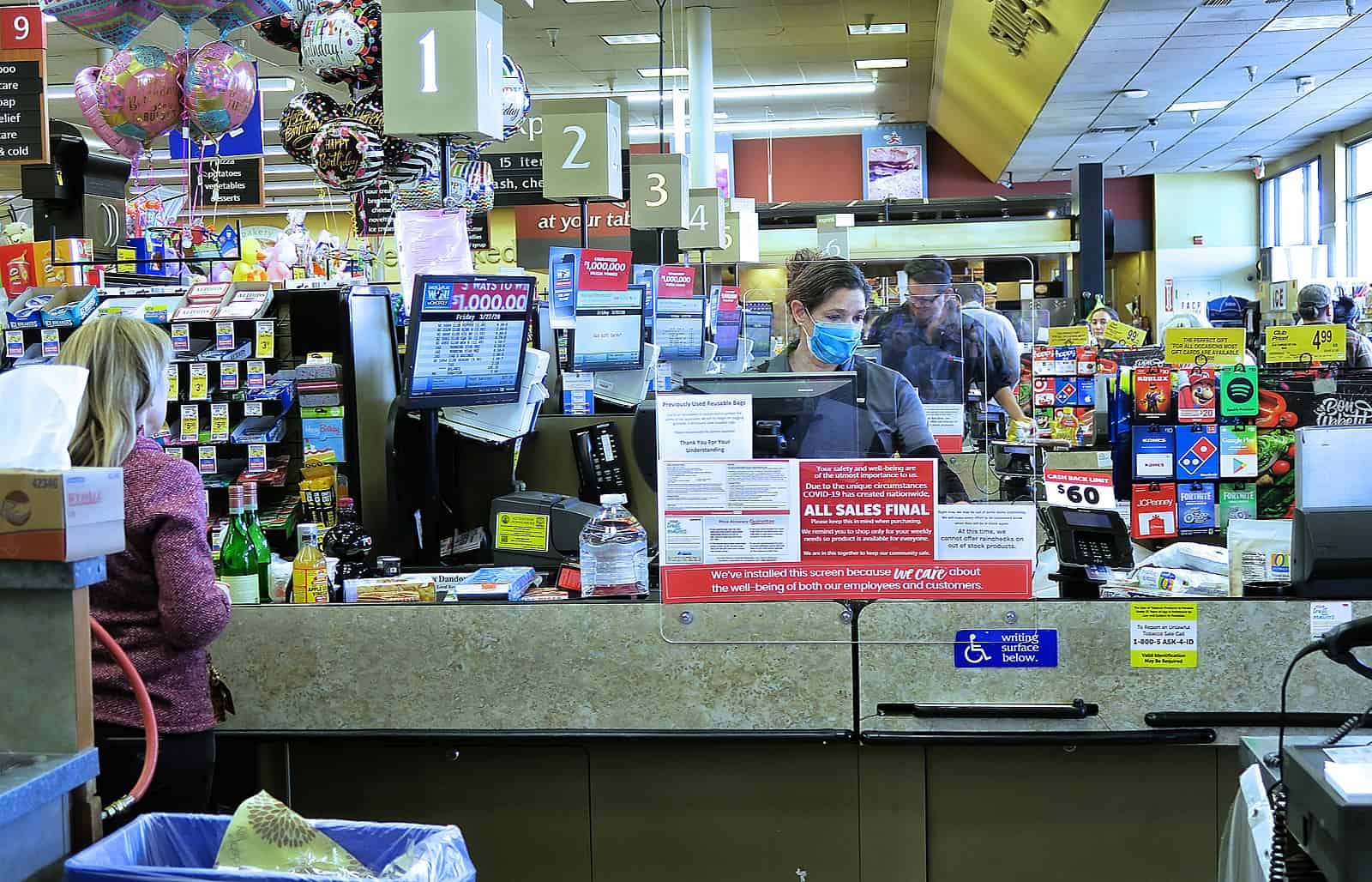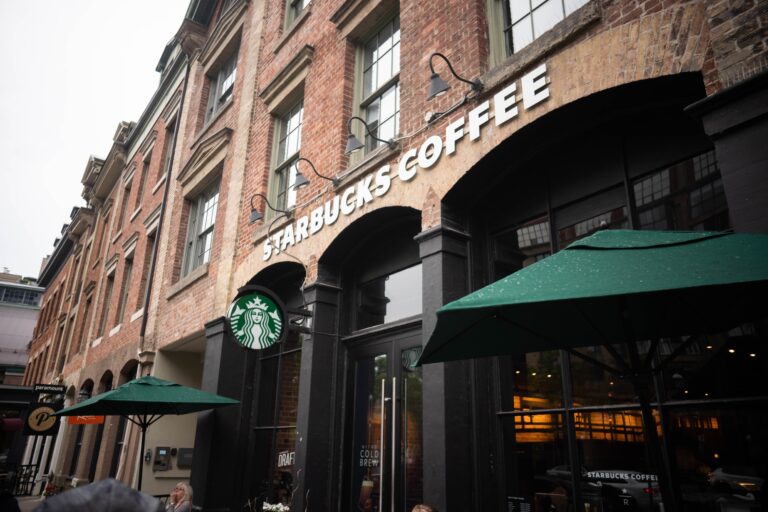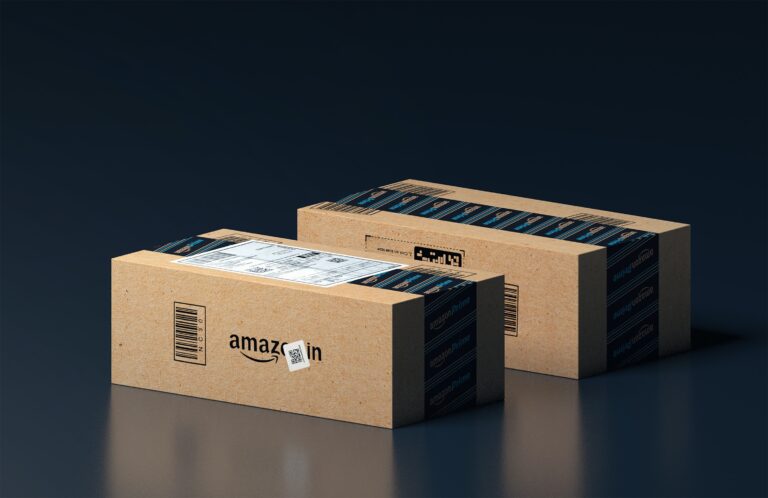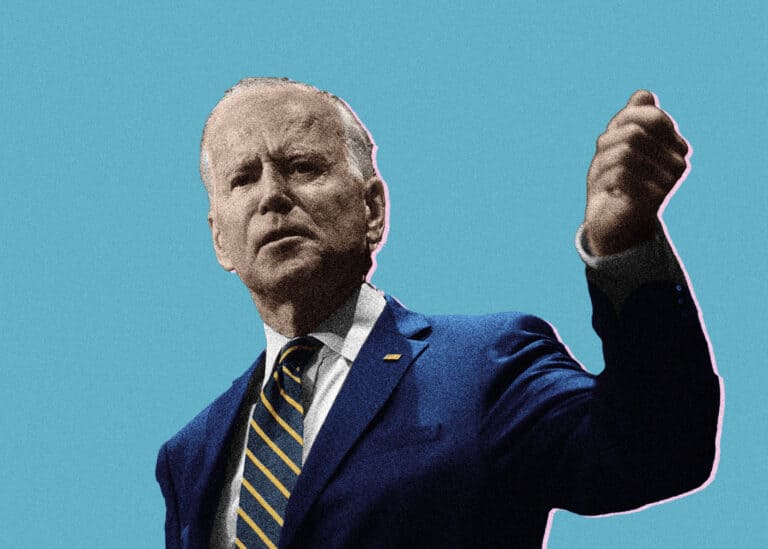
Jason Vazquez is a staff attorney at the International Brotherhood of Teamsters. He graduated from Harvard Law School in 2023. His writing on this blog reflects his personal views and should not be attributed to the IBT.
In the last year, as the words “remote work,” “quarantine,” and “social distancing” became fixtures of the public lexicon, millions of frontline workers—in grocery stores, warehouses, hospitals, retail shops, restaurants, and factories—found themselves compelled to continue showing up to work, often even performing mandatory overtime, in oppressive and dangerous conditions. These workers have effectively risked their lives so that the rest of us can stay home and safely receive packages from Amazon.
As the pandemic raged, the largest corporate retailers raked in record profits, while defying state orders to temporarily shutter and demanding that their employees return to work, often without protective equipment, safety measures, sick leave, or hazard pay. In various McDonald’s restaurants, for example, management has declined to enforce mask wearing and social distancing policies, refused to provide personal protective gear, failed to notify the crew when a fellow worker tests positive, and pressured infected employees to continue working. Home Depot has instructed employees not to wear masks; Whole Foods has kept stores open with infected workers; Kroger suddenly discontinued its policy of limited hazard pay, and Amazon has repeatedly discharged workers who protest unsafe working conditions. Thousands of workers in a Tyson meatpacking plant, packed together with no masks, contracted the virus, while supervisors wagered on how many would get sick. In the early days of the pandemic, fewer than 10 percent of employees in some big-box superstores had access to masks, and studies suggest that 20 percent of grocery workers have contracted COVID-19, while, workers insist, management refuses to adhere to store capacity and social distancing requirements. Nearly half of the U.S. workforce is reportedly afraid to go to work, and workplace safety complaints rose more than 350 percent in the first few months of 2020.
Perversely, many of these workers consider themselves fortunate to still be earning a paycheck, even as they agonize over the daily risk of exposure to a deadly pathogen. This is because, on the other hand, corporate employers have remorselessly furloughed millions, subjecting them to the uncertainty and indignity of attempting to support their families through unreliable state unemployment systems.
Perhaps it is unsurprising, given such widespread anxiety and abuse, that support for labor unions is reaching record highs.
The misery of the last few months has affected all (well, most) of us, but, as Jared Odessky observed on this blog early last year, unionized workers generally find themselves in a far better position to weather an economic crisis than their nonunion counterparts, given that they enjoy higher wages, greater access to paid sick leave and employer-sponsored health insurance, and more voice in the workplace. Indeed, even though only about 1 in 10 essential workers is represented by a union, they have managed to secure significantly better treatment during the coronavirus pandemic than their unorganized peers.
First, unionized workers were less likely to lose their jobs last year; even though the overall number of union workers declined in 2020, the overall rate of unionized workers increased. This is because union workers were laid off at proportionally lower rates than the general workforce. In addition to enhanced job security, unionized workers have also secured higher wages, bonus checks, paid leave, safety measures, and personal protective gear.
The United Food and Commercial Workers International Union, for example, secured an additional $4/hour and bonus payments for workers in meatpacking plants in a dozen states. The United Auto Workers forced General Motors and Ford to halt production for two weeks as the virus spread through certain plants and to supply employees with masks and other protective gear. The Communications Workers negotiated paid sick leave of up to 26 weeks for thousands of workers; unionized dining workers at universities like Harvard and MIT secured pay and benefit guarantees while furloughed; the Screen Actors Guild compelled major film production studios to provide mandatory personal protective gear and viral testing of the cast and crew on movie sets; and the Chicago Teachers Union has prevented Chicago Public Schools from recalling teachers to the classroom, ensuring their members can continue to work remotely until the citywide positivity rate declines and administrators update air filtration systems and provide protective equipment.
What is more, the power of unions has extended even beyond the walls of the workplace. Unions have filed lawsuits to protect workers, orchestrated vaccinations for their members, and, in an inspiring demonstration of solidarity, even organized food banks and support funds to provide relief not only to the workers that they represent but to thousands of individuals suffering in their communities, many of whom have been left reeling by the dire combination of a deadly pandemic and economic exploitation.
Later this week thousands of Amazon employees in Bessemer, Alabama will cast their ballots in an effort to become the e-commerce behemoth’s first unionized warehouse in the United States. Though some were stunned by the news, the unionization drive in Bessemer represents only the latest in a flurry of labor activism among frontline workers in recent months. The pandemic has vividly exposed the nearly unfettered power that employers exercise over the lives of their employees, and has revealed to many the contradiction that those doing the work most fundamental to the functioning of our society are often the lowest paid and most abused. Indeed, the indignities inflicted on essential workers during the pandemic have driven many of them to stand up, speak out, and attempt to organize and join unions. Across the country, thousands of workers have staged walk-outs and gone on strike, and union leaders report a flood of calls from disgruntled workers determined to protect themselves. Employers have responded ruthlessly, firing workers who go on strike, attempt to organize, or vote to unionize, and exploiting the pandemic not only to crush emerging unionization efforts but, in some cases, to destroy existing unions. The Amazon model neatly captures the injustices the pandemic has engendered: while the company recorded its most profitable year ever, its warehouse workers objected, protested, and even sued over grueling and unsafe conditions, and thousands tested positive for COVID-19. It is hardly surprising, and quite exciting, that exhausted and distressed workers at the large Amazon packing facility in Bessemer, Alabama finally decided to organize.
The pandemic has showcased the crucial contributions that unions make to workers’ lives. However, though formidable in empowering employees and reducing economic inequality, unions’ ability to fully protect working people from the ravages of economic dislocation is curtailed by the broader economic system in which they operate. Even unionized workers, after all, have not entirely escaped dismissals, furloughs, and pay cuts during the pandemic, and many have tragically become infected and died. A more comprehensive liberation of essential workers may require transitioning to an economic system that is more democratic and cooperative than the one presently prevailing. Nevertheless, labor unions have offered a critical layer of protection to millions of working people during these challenging times.










Daily News & Commentary
Start your day with our roundup of the latest labor developments. See all
December 11
In today’s News and Commentary, Biden’s NLRB pick heads to Senate vote, DOL settles a farmworker lawsuit, and a federal judge blocks Albertsons-Kroger merger. Democrats have moved to expedite re-confirmation proceedings for NLRB Chair Lauren McFerran, which would grant her another five years on the Board. If the Democrats succeed in finding 50 Senate votes […]
December 10
In today’s News and Commentary, advocacy groups lay out demands for Lori Chavez-DeRemer at DOL, a German union leader calls for ending the country’s debt brake, Teamsters give Amazon a deadline to agree to bargaining dates, and graduates of coding bootcamps face a labor market reshaped by the rise of AI. Worker advocacy groups have […]
December 9
Teamsters file charges against Costco; a sanitation contractor is fined child labor law violations, and workers give VW an ultimatum ahead of the latest negotiation attempts
December 8
Massachusetts rideshare drivers prepare to unionize; Starbucks and Nestlé supply chains use child labor, report says.
December 6
In today’s news and commentary, DOL attempts to abolish subminimum wage for workers with disabilities, AFGE reaches remote work agreement with SSA, and George Washington University resident doctors vote to strike. This week, the Department of Labor proposed a rule to abolish the Fair Labor Standards Act’s Section 14(c) program, which allows employers to pay […]
December 4
South Korea’s largest labor union began a general strike calling for the President’s removal, a Wisconsin judge reinstated bargaining rights for the state’s public sector workers, and the NLRB issued another ruling against Starbucks for anti-union practices.